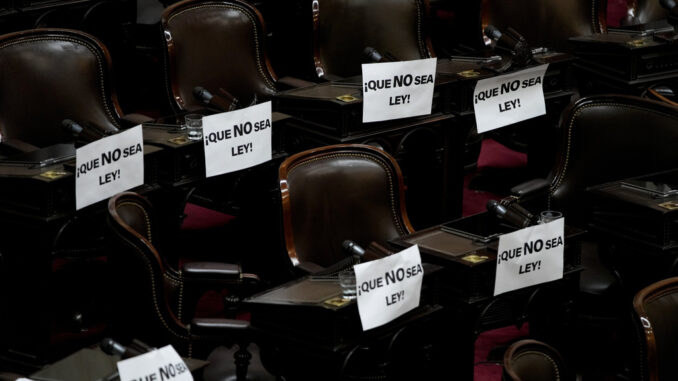
BUENOS AIRES, Argentina — Argentina’s Chamber of Deputies on Friday approved in general terms a reform bill proposed by libertarian President Javier Milei to deregulate the economy, overcoming a hurdle for the sweeping initiative after three days of heated debate.
But the fine print of the omnibus bill’s more than 300 articles, including economic, administrative, criminal and environmental changes, is still subject to negotiations in the lower house. The initiative must also be approved by the Senate.
On Friday, lower house lawmakers approved Milei’s initiative with 144 votes in favor and 109 against. The house goes into recess until Tuesday, when the deputies will begin negotiating the individual articles in the bill.
Milei thanked opposition leaders who supported the initiative, saying “they understood the historical context and chose to end the privileges of the caste and the corporate republic, in favor of the people, who have been impoverished and are hungry.”
While they approved the omnibus legislation in general terms, some lawmakers have expressed reservations about articles relating to the privatization of state companies and the delegation of legislative powers to the president. Other articles in the bill aim to lift state controls over the economy, reform the administrative, health and education sectors, and raise public service and utility rates.
Pushing the initiative through legislature has tested the negotiating capacity of Milei, an economist with little previous political experience who took office Dec. 10. His Freedom Advances party is the third strongest in Congress and lacks the seats to impose his agenda alone.
The president, who describes as a libertarian and anarcho-capitalist, has promised to drastically reduce state spending to shore up a government budget deficit that he says is fueling inflation, which finished 2023 at 211%.
Since his inauguration, Milei has devalued Argentina’s currency by 50%, cut transport and energy subsidies, and said his government won’t renew contracts for more than 5,000 state employees hired before he took office.
The measures and proposals have stirred protests in Buenos Aires, Argentina’s capital. Last week, the president faced a one-day general strike organized by the biggest union.


